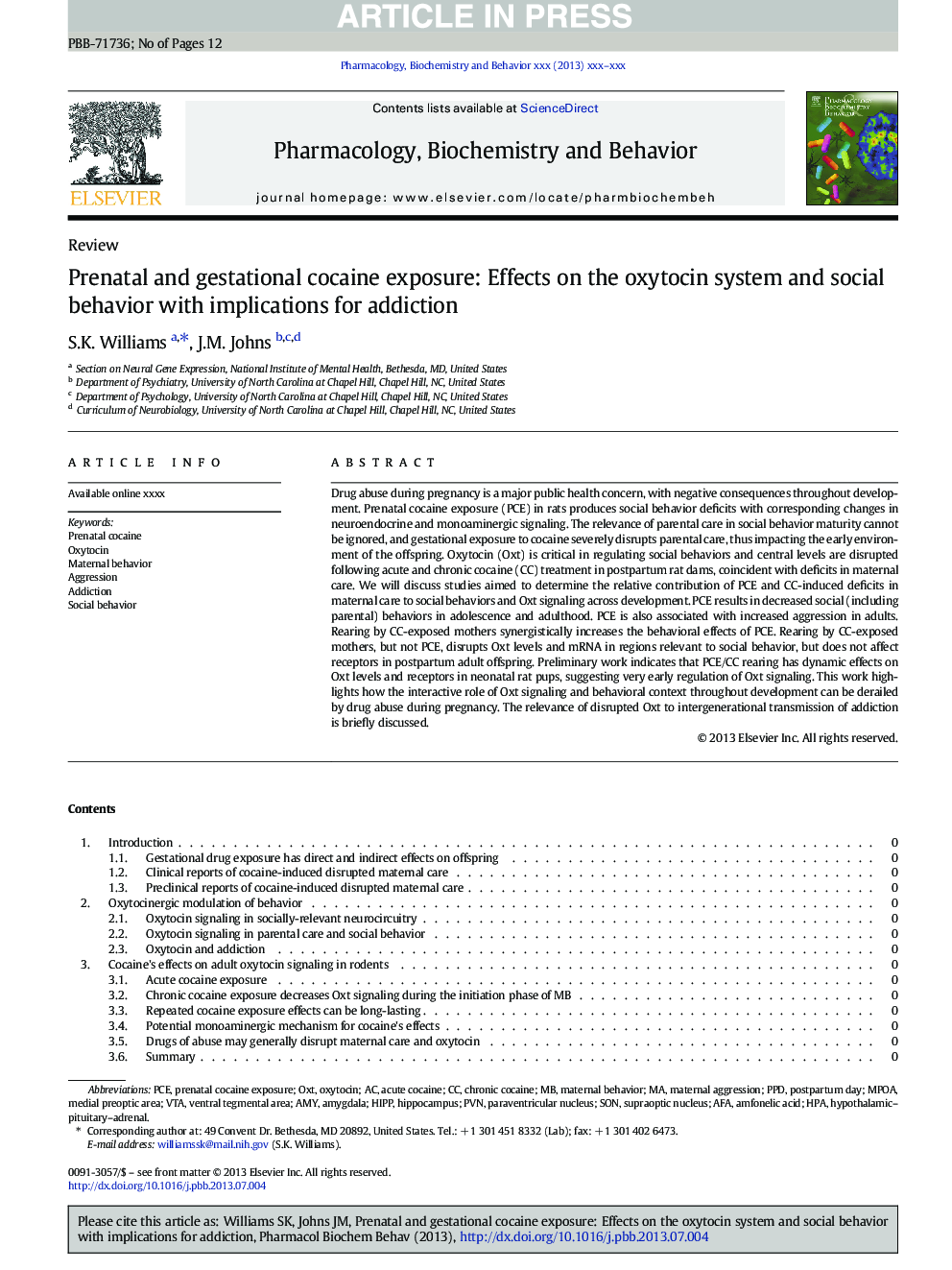| Article ID | Journal | Published Year | Pages | File Type |
|---|---|---|---|---|
| 8351253 | Pharmacology Biochemistry and Behavior | 2014 | 12 Pages |
Abstract
Drug abuse during pregnancy is a major public health concern, with negative consequences throughout development. Prenatal cocaine exposure (PCE) in rats produces social behavior deficits with corresponding changes in neuroendocrine and monoaminergic signaling. The relevance of parental care in social behavior maturity cannot be ignored, and gestational exposure to cocaine severely disrupts parental care, thus impacting the early environment of the offspring. Oxytocin (Oxt) is critical in regulating social behaviors and central levels are disrupted following acute and chronic cocaine (CC) treatment in postpartum rat dams, coincident with deficits in maternal care. We will discuss studies aimed to determine the relative contribution of PCE and CC-induced deficits in maternal care to social behaviors and Oxt signaling across development. PCE results in decreased social (including parental) behaviors in adolescence and adulthood. PCE is also associated with increased aggression in adults. Rearing by CC-exposed mothers synergistically increases the behavioral effects of PCE. Rearing by CC-exposed mothers, but not PCE, disrupts Oxt levels and mRNA in regions relevant to social behavior, but does not affect receptors in postpartum adult offspring. Preliminary work indicates that PCE/CC rearing has dynamic effects on Oxt levels and receptors in neonatal rat pups, suggesting very early regulation of Oxt signaling. This work highlights how the interactive role of Oxt signaling and behavioral context throughout development can be derailed by drug abuse during pregnancy. The relevance of disrupted Oxt to intergenerational transmission of addiction is briefly discussed.
Related Topics
Life Sciences
Biochemistry, Genetics and Molecular Biology
Biochemistry
Authors
S.K. Williams, J.M. Johns,
